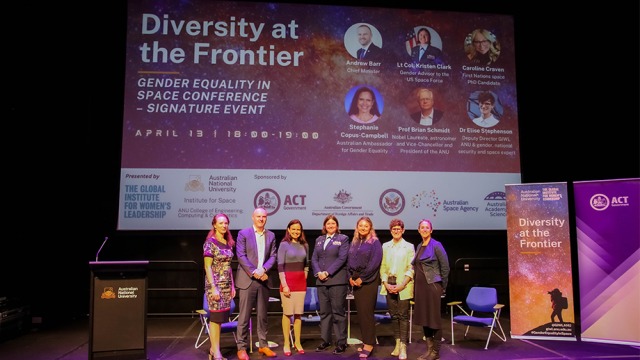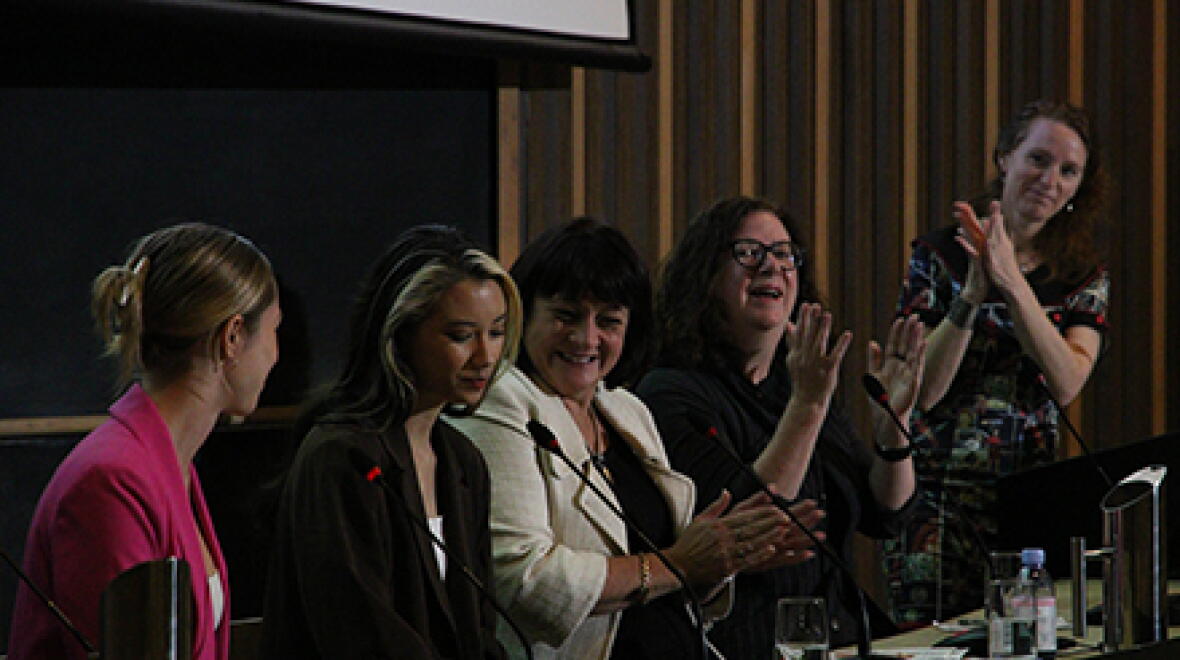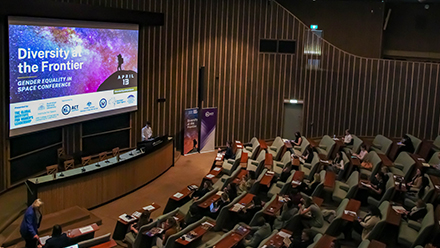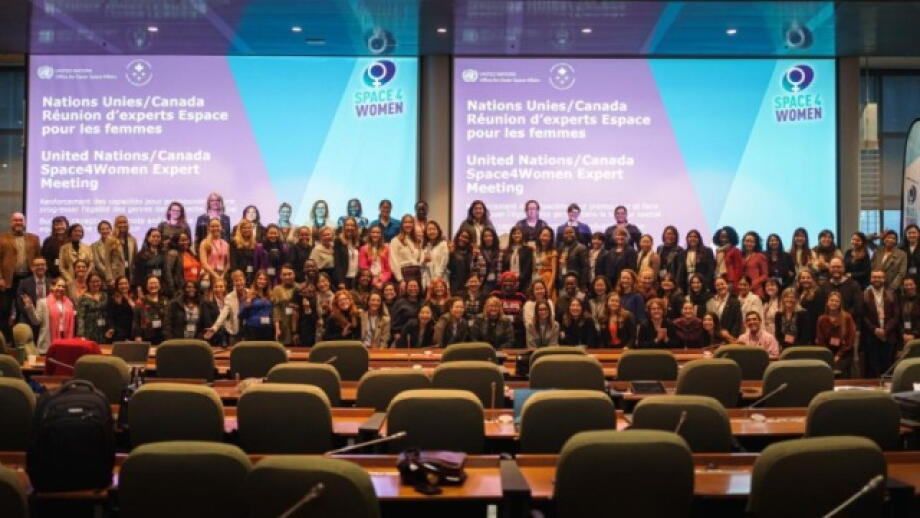Last month, we gathered academic experts, frontline practitioners, policymakers, and the next generation of the space workforce for Australia’s first ever conference on gender equality in space. We were honoured to be joined by prominent national and international speakers, including Lt. Col. Kristen Clark from the US Space Force, the Australian Ambassador for Gender Equality Stephanie Copus-Campbell, Chief Minister Andrew Barr, and many more.
Held at the historic Shine Dome at the Australian National University in Canberra from 12-14 April 2023, the conference inspired discussions of national significance and investigated the most pressing questions of the space sector. Is space gendered? What barriers are facing women and historically marginalised groups embarking on space careers? Can we apply the Women, Peace and Security Agenda to space? Does a lack of diversity in the space workforce pose a security risk? And what are the implications of space activities for First Nations communities?
The conference explored critical gaps for historically marginalised populations, including women, LGBTIQ+ individuals and First Nations communities. Discussions highlighted that there is a moral imperative to address these gaps through research, policy and practice, and that a fully diverse, representative and inclusive workforce also makes sense from a purely economic perspective – bringing strategic benefits to organisations and helping to overcome substantial workforce shortages.
Through a series of panel discussions and workshops, we uncovered key insights into the current state of the space sector, and what needs to change moving forward. We learnt that exclusion and discrimination are common and historic issues in the sector that persist today and impact everything from the division of roles and leadership opportunities, to recruitment practices, funding decisions and unequal pay.
Moreover, this lack of diversity and inclusion presents major risks, not only for organisations – who are likely to face issues of under-performance, poor staff retention, and stifled innovation to name just a few – but also society more broadly. Space is a global common and should therefore reflect the global community – the argument for diversity goes beyond the “business case”, it is something that profoundly affects us all.
So, we know that there's an unmistakable need for greater diversity and inclusion in the sector, but how will we get there? Our discussions established that governments have a key role to play when it comes to setting this agenda and holding industry accountable. The space sector also needs to reconsider how it advertises itself and to whom. Although, when we stereotypically think of space industries our minds go to STEM fields, in reality the sector extends far beyond this, encompassing law, archaeology, history, business, arts, diplomacy, communications and much more. Fixing this misconception would attract a more diverse talent pool that could unlock greater productivity and innovation in the sector.
Collaboration among stakeholders is also pivotal. In particular, engaging with Indigenous and historically marginalised communities could expand our knowledge and understanding of space. Collaboration between government agencies, industry stakeholders, academia, and diverse communities is essential if we’re to achieve the changes in the sector we need to see.
We are at a crossroads moment and it is imperative to get this right now while the space sector in Australia is still relatively young. Because Australian space institutions, such as the Australian Space Agency and Defence Space Command, are new, government and industry must seize this opportunity to embed inclusion and diversity practices from the start and learn from the mistakes of other sectors before it is too late.
Without tangible and immediate action, Australia’s space sector risks falling further behind its international counterparts. So, what needs to happen now?
Over the three-day conference, we came up with a number of recommendations for government agencies, organisations, and individuals engaged in the space sector on how to make the changes that are so urgently needed in the industry. These included changes to formal policies (such as updating recruitment processes), informal practices (like setting up networks) and general guidance on how to mainstream diversity, inclusion, equity, and belonging initiatives and practices across the sector.
Additionally, there is an urgent need for more research on representation and experiences of diversity in the sector. After all, if we don’t fully understand the extent of the problems (and opportunities) how can we ever address them? With this in mind, we’re conducting a research study to better understand gender (and other forms of diversity) in the Australian and US space sectors. This research will act as a "gender and diversity audit" of the industry, mapping representation and helping us to understand how diversity is experienced, what policies may/may not be working, and the key challenges and opportunities for the space sector around gender and other forms of diversity.
You can read our full list of recommendations and research insights in our Conference Insights Report.
The Diversity at the Frontier Conference was convened by Dr Elise Stephenson, Dr Cassandra Steer and Prof Meredith Nash, and hosted by the Global Institute for Women’s Leadership and ANU InSpace. Generous support was provided by The ACT Government, the Department of Foreign Affairs and Trade, the Australian Space Agency, the US Government, and the Australian Academy of Science.
Contact
Elise Stephenson
Deputy Director
Climate change, Intersectionality & identity, Politics & international affairs, The space sector, Youth engagement
You may also like
How can we build capacity to advance gender equality in the space sector?
In November, we attended the 2023 Space4Women Expert Meeting in Montréal, Canada. The meeting was part of the Space4Women project, which aims to encourage women and girls to pursue Science,…











